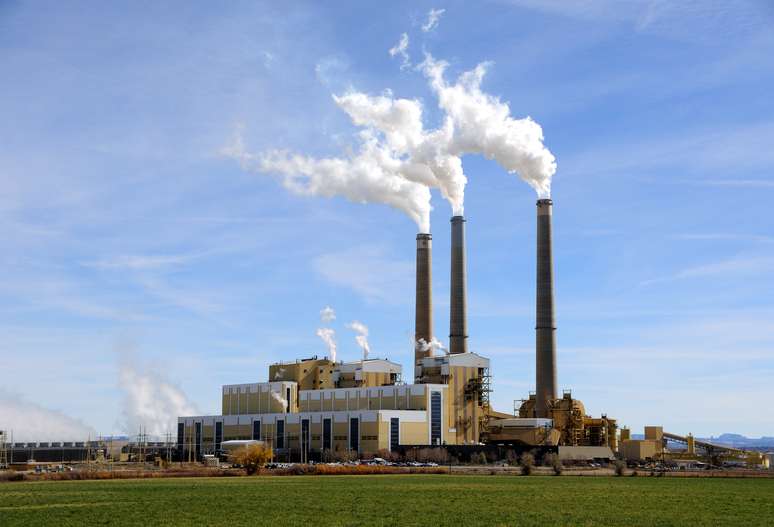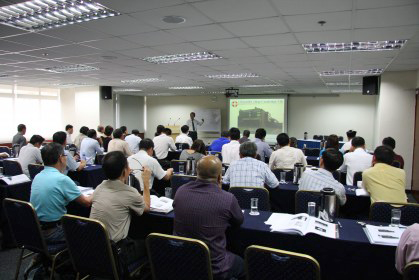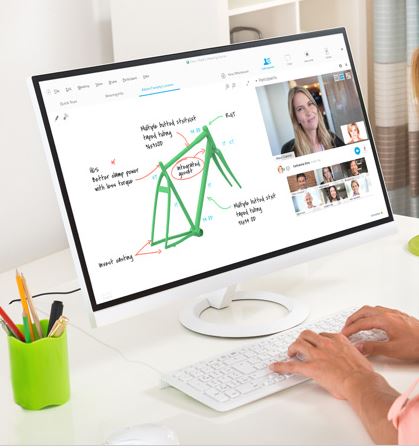|
Home | Consulting | Training | Expert Witness | Failure Analysis | Design Review | Corrosion Test | Corrosion Software | Protective Coatings | Materials Selection | Cathodic Protection | >>> | ||
|
WRC 490 Damage Mechanisms Affecting Fixed Equipment In Fossil Electric Power Industry |
||
|
Course Outline |Who Should Attend |Registration |In-House |On-Demand |Online Courses |PPT Slides+Testbank |Course List | Why WebCorr |
||
|
Course Overview |
||
|
There are significant economic benefits in continuing the operation of
aging pressure vessels, piping, and tankage. API 579 Recommended
Practice for Fitness-For-Service was developed to provide a central
reference for flaw evaluation and damage assessment of aging equipment.
The first step in a fitness-for-service assessment performed in
accordance with API RP 579 is to identify the flaw type and the cause of
damage. Proper identification of damage mechanisms for components
containing flaws or other forms of deterioration is also the first step
in performing a Risk-Based Inspection (RBI) in accordance with API RP
580. One factor that complicates a FFS assessment or RBI study for
fossil electric power plant equipment is that material/environmental
condition interactions are extremely varied. Fossil electric power
plants contain many different processing units, each having its own
combination of aggressive process streams and temperature/pressure
conditions.
This corrosion short course is available for in-house training, online and distance learning worldwide. It can also be customized to meet the specific needs of your organization.
|
||
|
||
| Course Outline | ||
|
1. Introduction to Corrosion 1.1 Corrosion: Definition and Examples 1.2 Basic Concepts in Electrochemistry 1.3 Why Do Metals Corrode 1.4 Kinetics: the Rate of Corrosion 1.5 Kinetics: Corrosion Affected by Diffusion 1.6 How Do Metals Corrode: Different Forms of Corrosion 1.7 General Methods for Corrosion Control
2. Introduction to WRC 490 Damage Mechanisms Affecting Fixed Equipment
In Fossil Electric Power Industry
3. Definition of Terms and Abbreviations
4. General Damage Mechanisms – All Industries Including Refining and Petrochemical, Pulp and Paper, and Fossil Utility 4.1 General 4.2 Mechanical and Metallurgical Failure Mechanisms 4.2.1 Graphitization 4.2.2 Softening (Spheroidization) 4.2.3 Temper Embrittlement 4.2.4 Strain Aging 4.2.5 885oF Embrittlement 4.2.6 Sigma Phase Embrittlement 4.2.7 Brittle Fracture 4.2.8 Creep / Stress Rupture 4.2.9 Thermal Fatigue 4.2.10 Short Term Overheating – Stress Rupture 4.2.11 Steam Blanketing 4.2.12 Dissimilar Metal Weld (DMW) Cracking 4.2.13 Thermal Shock 4.2.14 Erosion / Erosion-Corrosion 4.2.15 Cavitation 4.2.16 Mechanical Fatigue 4.2.17 Vibration-Induced Fatigue 4.2.18 Refractory Degradation 4.2.19 Reheat Cracking 4.3 Uniform or Localized Loss of Thickness 4.3.1 Galvanic Corrosion 4.3.2 Atmospheric Corrosion 4.3.3 Corrosion Under Insulation (CUI) 4.3.4 Cooling Water Corrosion 4.3.5 Boiler Water Condensate Corrosion 4.3.6 CO2 Corrosion 4.3.7 Flue Gas Dew Point Corrosion 4.3.8 Microbiologically Induced Corrosion (MIC) 4.3.9 Soil Corrosion 4.3.10 Caustic Corrosion 4.3.11 Dealloying 4.3.12 Graphitic Corrosion 4.4 High Temperature Corrosion [400oF (204oC)] 4.4.1 Oxidation 4.4.2 Sulfidation 4.4.3 Carburization 4.4.4 Decarburization 4.4.5 Metal Dusting 4.4.6 Fuel Ash Corrosion 4.4.7 Nitriding
4.4.8
S-Compass: Software for the Modeling and Prediction of 4.5 Environment – Assisted Cracking 4.5.1 Chloride Stress Corrosion Cracking (CI–SCC) 4.5.2 Corrosion Fatigue 4.5.3 Caustic Stress Corrosion Cracking (Caustic Embrittlement) 4.5.4 Ammonia Stress Corrosion Cracking 4.5.5 Liquid Metal Embrittlement (LME) 4.5.6 Hydrogen Embrittlement (HE)
5 Fossil Utility Industry Damage Mechanisms 5.1 General 5.1.1 Uniform or Localized Loss in Thickness
5.1.1.1 Erosion (Coal) 5.2 Boiler Tube Damage Matrix 5.2.1 Common Heater Tube Damage Mechanisms in Fired Boilers and Steam Generating Equipment 5.3 Process Unit PFD’s 5.3.1 Boiler Steam Condensate
6. End-of-Course Examination
|
||
|
Course Outline |Who Should Attend |Registration |In-House |On-Demand |Online Courses |PPT Slides+Testbank |Course List |
||
| Who Should Attend | ||
|
Design Engineers, Inspection Engineers, Maintenance Engineers, Plant Inspectors, Mechanical Engineers, and Process Engineers in the Fossil Electric Power Industry.
|
||
| Registration for This Corrosion Course | ||
| In-House Training Corrosion Courses/On-Site Training Corrosion Courses | ||
|
There is no limit to the number of participants required for in-house training corrosion courses or on-site training corrosion courses. We conduct the in-house or on-site training corrosion courses at your company's premises worldwide and at a time convenient to your company.
Click here to contact us for a quotation.
|
||
| Corrosion Course-On-Demand | ||
|
Click here to contact us for a quotation for taking this course as course-on-demand.
|
||
| Online and Distance Learning Corrosion Courses | ||
|
All our corrosion short courses are available for online or offline distance learning. You can start an online course at any time and learn at your own comfortable pace, whenever and wherever you are. You have around-the-clock access to interactive and media-rich course materials, virtual labs, course instructions, course assignments, and course assessments. Discussions and questions related to the corrosion courses are posted on the website or exchanged through email for a period up to 3 months. Video conferencing or instant messaging can also be arranged for discussions of course topics. For those who do not have ready access to internet, we can send you our online course materials on a CD-ROM or DVD or USB memory stick for offline learning. Click here to register this corrosion short course for online or distance learning. |
||
| Corrosion Course-On-Webex | ||
|
Click here to contact us for a quotation.
|
||
| PowerPoint Slides and Test Banks for Trainers, Instructors, Tutors, University Lecturers and Professors | ||
|
If you are involved in teaching or training, you may wish to purchase a complete set of the trainer's package for this training course. The trainer's package comes complete with ready-to-use PowerPoint slides (fully editable) and test bank (with answer keys). These ready-to-use PowerPoint slides contain high quality color photographs, illustrations, animations, audio and video clips. The test bank contains questions in four categories: (1) true or false, (2) multiple choice, (3) calculation, and (4) reasoning and open-ended discussions. The trainer's package is suitable for in-house training and university teaching. This is exactly the same package that WebCorr uses to deliver our current training course. The one-time lump sum fee allows your organization to use the training package and also modify it. For example, your organization may modify the course contents and re-name/re-brand the course under your organization’s name. WebCorr only retains the copyright of the original PowerPoint slides and test bank.
Click here to contact us if you need more information on the trainer's package.
|
||
|
Course Outline |Who Should Attend |Registration |In-House |On-Demand |Online Courses |PPT Slides+Testbank |Course List |
||
|
Copyright © 1995-2025.. All rights reserved. |
||

 If you are concerned with corrosion in your
business, in-house training or on-site training is a great solution to train a group of
employees from design, production, operation, quality assurance, inspection
and maintenance, and technical sales and support on corrosion control and
corrosion prevention technology. The contents of all our corrosion courses can
be customized to fit your organization's needs.
If you are concerned with corrosion in your
business, in-house training or on-site training is a great solution to train a group of
employees from design, production, operation, quality assurance, inspection
and maintenance, and technical sales and support on corrosion control and
corrosion prevention technology. The contents of all our corrosion courses can
be customized to fit your organization's needs.
 All our publicly scheduled corrosion short courses are conducted once a year. However, you do not need to wait for one year if you have missed any of the publicly scheduled corrosion courses as we have this unique corrosion course-on-demand scheme: we will conduct the course just for you on an one-on-one basis at a time and in a location convenient to you. This option costs significantly less than a full-scale in-house training program.
All our publicly scheduled corrosion short courses are conducted once a year. However, you do not need to wait for one year if you have missed any of the publicly scheduled corrosion courses as we have this unique corrosion course-on-demand scheme: we will conduct the course just for you on an one-on-one basis at a time and in a location convenient to you. This option costs significantly less than a full-scale in-house training program.
 Webex
is hosted by Cisco, a product purpose-built for real-time web
communications. If you are an existing user of Webex, or if you are
willing to experience the power of Webex, we can conduct the course for you
over Webex with audio and video presentations and interactions with the
course instructor and other course attendees in real-time. It is just like
the physical classroom settings that everyone can interact with each other.
Your questions will be answered in real time by our instructor.
Webex
is hosted by Cisco, a product purpose-built for real-time web
communications. If you are an existing user of Webex, or if you are
willing to experience the power of Webex, we can conduct the course for you
over Webex with audio and video presentations and interactions with the
course instructor and other course attendees in real-time. It is just like
the physical classroom settings that everyone can interact with each other.
Your questions will be answered in real time by our instructor.